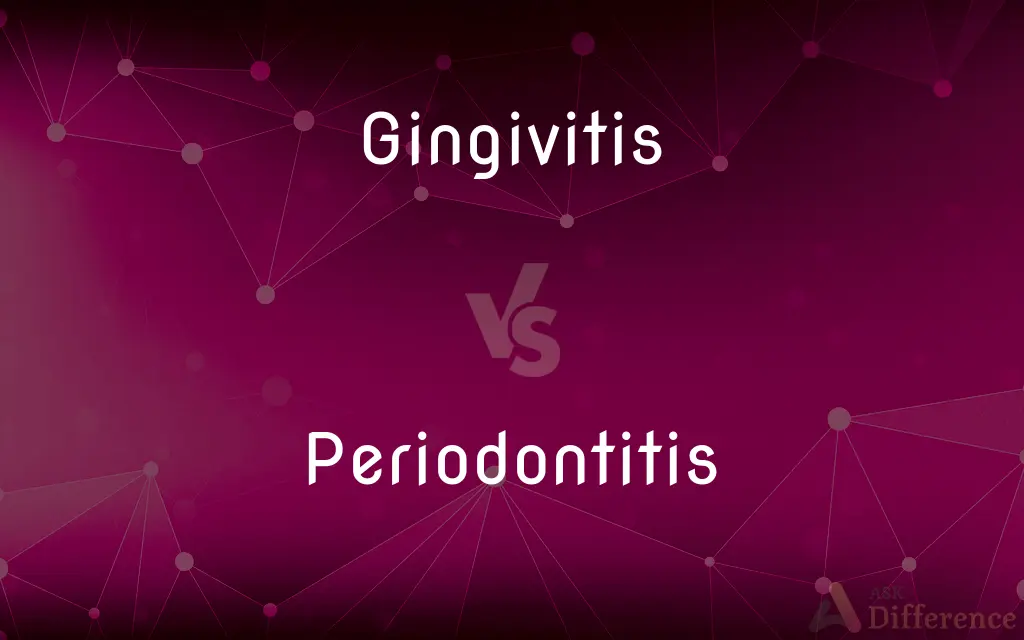Gingivitis vs. Periodontitis — What's the Difference?

Difference Between Gingivitis and Periodontitis
ADVERTISEMENT
Compare with Definitions
Gingivitis
Gingivitis is a non-destructive disease that causes inflammation of the gums. The most common form of gingivitis, and the most common form of periodontal disease overall, is in response to bacterial biofilms (also called plaque) that is attached to tooth surfaces, termed plaque-induced gingivitis.
Periodontitis
(periodontology) A serious form or stage of periodontal disease which may lead to loss of bone and falling out of teeth.
An untreated gingivitis may lead to periodontitis, both forms of periodontal disease.
Gingivitis
Inflammation of the gums, characterized by redness and swelling.
Periodontitis
A disease that attacks the gum and bone and around the teeth
Gingivitis
(pathology) Inflammation of the gums or gingivae.
ADVERTISEMENT
Gingivitis
Inflammation of the gums
Share Your Discovery

Previous Comparison
Foot vs. Feet
Next Comparison
Confine vs. Define














































